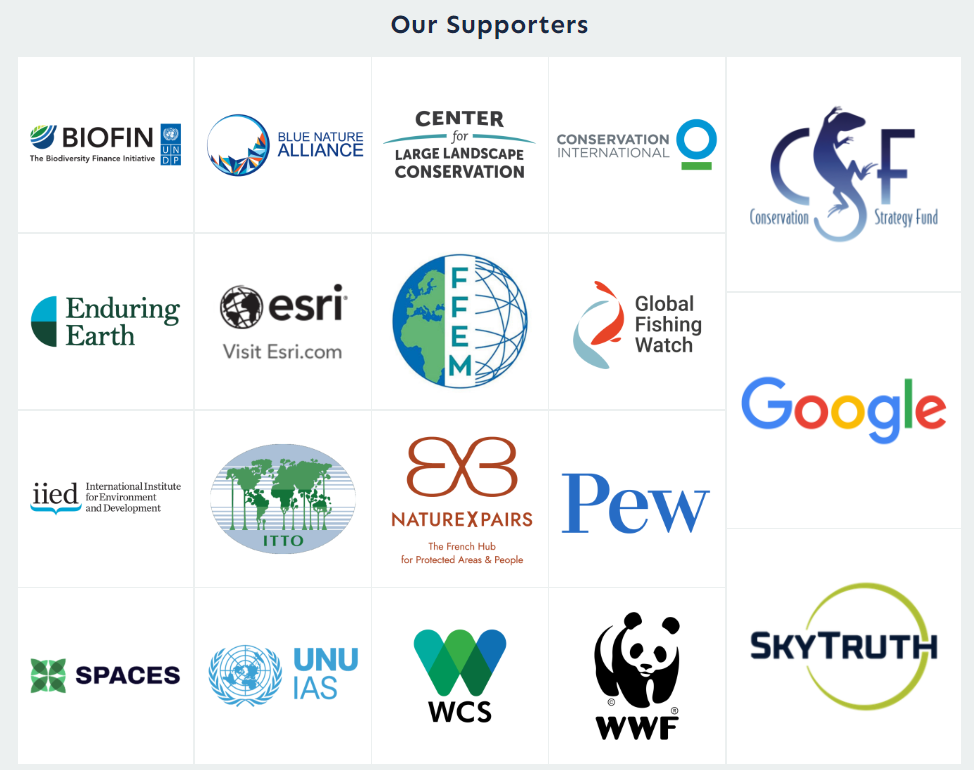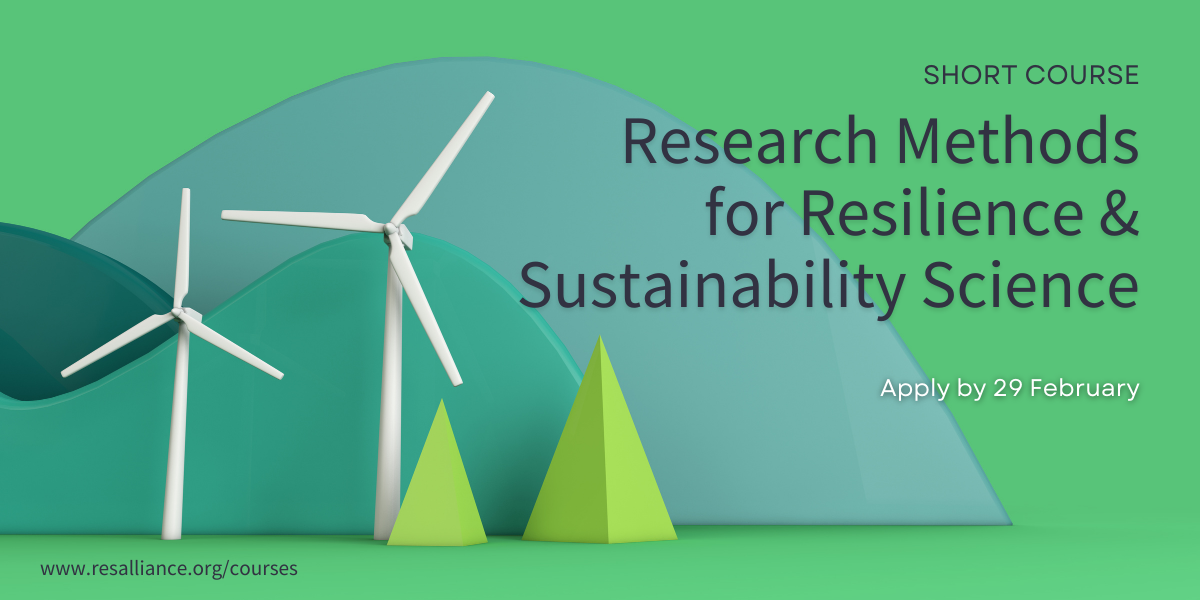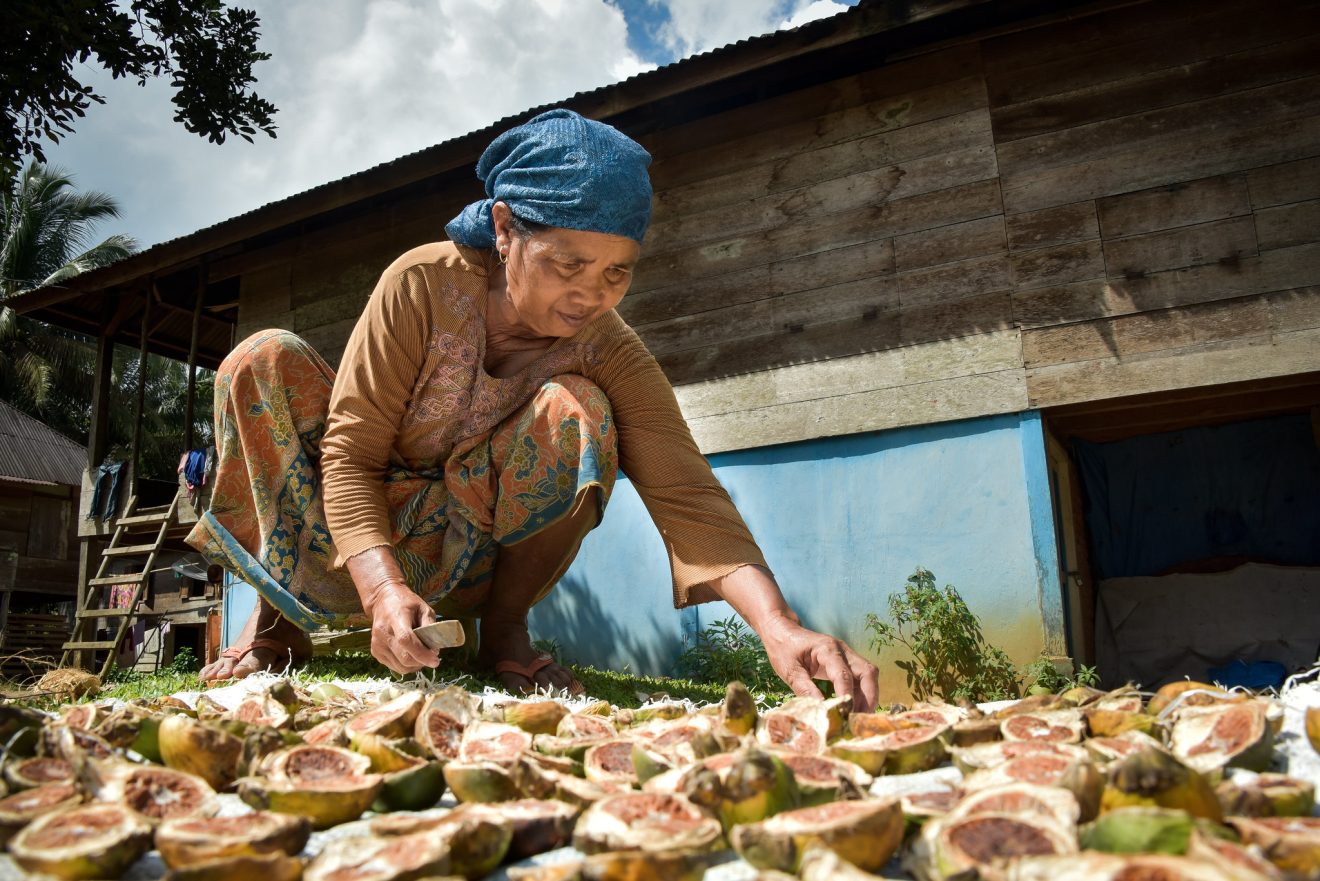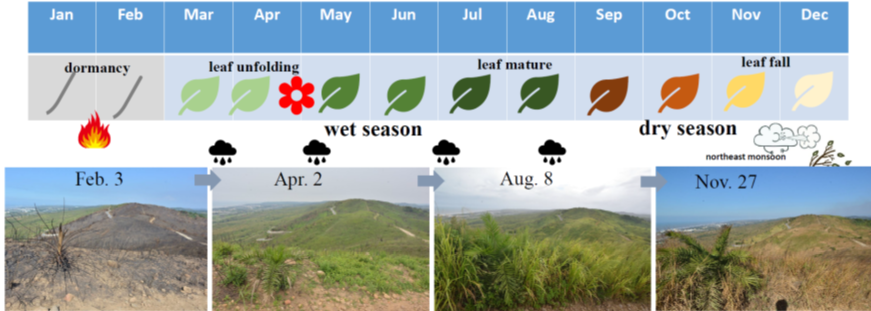|
|
|
|
☃️Welcome to the Winter Newsletter!
|
Below are some highlights of what you will find in this seasonal edition:
|
- UNU-IAS Joins HAC as Supporter
- New IPSI Members and Collaborative Activities
- Short Course on Research Methods for Resilience & Sustainability Science
- Standards of Practice to Guide Ecosystem Restoration
- Case Study on the Interaction Between Human Beings and Grassland Ecosystems
- And more!
Contact us to submit case studies and news about your activities.
|
|
|
|
|
|
UNU-IAS Supports High Ambition Coalition for Nature and People
|

|
|
UNU-IAS has partnered with the High Ambition Coalition for Nature and People (HAC for N&P) to conserve 30% of land and oceans by 2030. The HAC for N&P is a coalition of 118 countries committed to this ambitious goal, established during COP15 in response to the urgent threats facing biodiversity. This initiative aims to protect essential ecosystems crucial for human well-being and economic resilience.
|
On February 10, 2024, HAC announced its official Partners and Supporters, welcoming UNU-IAS through the IPSI Secretariat as a supporter. While Partners are non-state actors that actively shape the coalition's strategies and initiatives, Supporters, like UNU-IAS, contribute valuable expertise, resources, and advocacy efforts.
|
|

|
In this collaboration, UNU-IAS will leverage its proficiency in landscape approaches and social-ecological systems thinking alongside IPSI members to advance HAC's objectives. Drawing upon case studies from IPSI, UNU-IAS will provide insights into the relationship between communities and their environments, enriching the coalition's strategies.
|
By prioritizing inclusive and participatory methods, UNU-IAS endeavours to ensure that efforts to conserve 30% of land and oceans honour diverse cultural contexts and protect the rights of those most susceptible to environmental shifts. This involves amplifying the voices of local communities and indigenous peoples, ensuring their perspectives are not only heard but also respected.
|
With UNU-IAS as a supporter, the HAC for N&P gains access to a trove of resources and expertise, driving meaningful progress toward its ambitious conservation goals. Together, this partnership aims to forge a path toward a sustainable future where nature thrives, benefiting both humanity and the planet.
|
|
For information on how to become a HAC Partner or Supporter, click here
|
|
|
|
|
|
|
|
Welcome New Members!
|
We are thrilled to announce that the IPSI Steering Committee has recently endorsed ten new organizations, bringing the total number of IPSI members to 314! Meet the new members:
|
Academic, Educational and/or Research Institute
|
Industry or Private Sector Organization
|
National or Local Governmental Organization
|
Non-Governmental or Civil Society Organizations
|
|
Endorsed Collaborative Activities!
|
- Taiwan IPSI Members Annual Exchange events – fostering an effective implementation of the 2023-2030 IPSI Plan of Action
Forestry and Nature Conservation Agency (FANCA, former Forestry Bureau), National Dong Hwa University (NDHU), National Pingtung University of Science and Technology (NPUST), Dharma Drum Institute of Liberal Arts (DILA), Taiwan Biodiversity Research Institute (TBRI).
- Implement the Satoyama Initiative to promote sustainable development within the Saisiyat tribe community
Miaoli County Saisiyat Indigenous People Forestry and Worker Limited Liability Cooperative; Forestry and Nature Conservation Agency (FANCA); Taiwan Indigenous Ecological Agriculture Association; Nanzhuang Township Office, Miaoli County; Penglai Elementary School, Nanzhuang Township, Miaoli County.
- Mangrove restoration to improve Socioecological production landscapes and seascapes for fisheries recovery at Lake Malombe Site
Grains of Hope Mobilisation, Initiative for Community Health, Kafucheche Cooperative Group.
|
|
|
|
IPSI members are encouraged to propose activities carried out cooperatively by multiple organizations, with at least two IPSI members, as IPSI Collaborative Activities. If any IPSI members would like to propose a new Collaborative Activity, please contact the IPSI Secretariat for the Proposal Form.
|
|
|
|
|
|
Short Course on Research Methods for Resilience & Sustainability Science
|

|
Resilience Alliance is offering a short course in collaboration with NSERC ResNet and The Programme on Ecosystem Change and Society (PECS). This 5-day course will take place in person and is an official side-event of the PECS-3: Pathways to Sustainability conference taking place in Montreal, Canada, from August 5-9, 2024. Course participants will benefit from a small-group format and an intensive learning-by-doing program that draws on the expertise of scholars in resilience and sustainability research networks.
|
The course will focus on research methods that are commonly used in studying social-ecological systems, with a special emphasis on participatory and place-based methods.
|
Post-graduate students, including PhD, Post-docs and early-career researchers, are invited to apply by completing the online application form. Please go to the official webpage here.
|
|
Deadline 29 February 2024
|
|
|
|
|
|
Mongabay Features IPSI Secretariat Expert Comments on Natural Climate Solutions
|

|
|
|
On 20 February, Mongabay published an article discussing a new study that examines the principles that should guide natural climate solutions. Natural climate solutions are approaches that utilize nature-based methods to mitigate climate change, such as reforestation, conservation, and restoration of ecosystems.
|
The study aims to identify key principles that should underpin these solutions to ensure their effectiveness and sustainability. It explores the importance of considering biodiversity, human rights and broader ecological factors in the design of natural climate solutions.
|
By understanding and incorporating these principles, policymakers and practitioners can develop more holistic and effective strategies for addressing climate change while also promoting biodiversity conservation and safeguarding human well-being.
|
Suneetha Subramanian, Research Fellow at the IPSI Secretariat, provided comments on the limitations of focusing solely on climate change without considering broader ecological and social factors.
|
|
|
[Suneetha] says debates and interventions focused solely on climate, without considering people’s rights and biodiversity issues, can be short-sighted. She points out that leaving out values of nature that aren’t “measurable” in metrics such as CO2e, as outlined in the proposed principles, can set a “dangerous trend.”
Instead, she argues that we need to find approaches to integrate complex metrics, such as how humans interact with their environment in evaluating climate mitigation actions.
“By ignoring some of the interconnectedness that lies in such climate, biodiversity and human well-being realms, we are doing a huge disservice to such lived experiences,” Subramanian says, and as a result, “solutions themselves have become problems.”
|
|
|
Read the full article on the Mongabay website.
|
|
|
|
|
|
|
|
Event Spotlights Impact of COMDEKS for Local Communities
|
On 13 February 2024, Tsunao Watanabe (Director, IPSI Secretariat) delivered a keynote presentation on Community Development and Knowledge Management for the Satoyama Initiative (COMDEKS) — which promotes sustainable use of biodiversity and natural resources through small grants. The presentation was part of an event discussing past and future COMDEKS projects delivered under the Global Environment Facility Small Grants Programme, with participants including members of the Keidanren Committee for Nature Conservation and donor companies. It was organized by KCNC, UNDP, and the Ministry of the Environment of Japan.
|
|
|
|
|
|
Session at ISAP 2023 Highlights Projects of the Satoyama Development Mechanism
|
Discover how the Satoyama Development Mechanism (SDM) is driving meaningful projects for socio-ecological landscapes and seascapes (SEPLS) around the world. At the recent ISAP 2023 session, attendees learned about successful endeavors, such as community-based mangrove restoration and traditional farming practices, which showcase SDM's inclusive and localized approach.
|
|
|
|
|
|
Regional Dialogue on NBSAPs Puts IPSI's Landscape Approaches in the Spotlight
|
Dive into the pivotal discussions of the Regional Dialogue on National Biodiversity Strategies and Action Plans (NBSAPs) for South and East Asia, held in Tokyo. Organized by the Secretariat of the CBD (SCBD), and co-hosted by UNU-IAS and MOEJ, this event emphasized the urgent need to align NBSAPs with the Kunming–Montreal Global Biodiversity Framework. Of note was the unveiling of a comprehensive guide on integrating landscape approaches, developed by UNU-IAS and IGES, with the support of the SCBD.
|
|
|
|
|
|
|
|
Standards of practice to guide ecosystem restoration
|
|
|
|
The publication as published by the Food and Agriculture Organization of the United Nations, the Commission on Ecosystem Management of the International Union for Conservation of Nature and the Society for Ecological Restoration, in cooperation with 22 collaborative organizations.
|
|
|
|
|
|
|
|
The interaction between human beings and grassland ecosystems: conservation and environmental education of rural grassland landscapes
|

|
Figure 3. Sampling insects by beat netting in pomelo orchard.
|
Recent case study submitted by *Soil and Water Conservation Bureau, Council of Agriculture Executive Yuan.
|
Miaoli County's coastal hillsides in Taiwan, China, host rare and endangered plant species with significant ecosystem functions in grassland landscapes that are intertwined with farmlands and residential spaces.
|
The *Soil and Water Conservation Bureau (SWCB) conducted ecological impact assessments, promoted eco-friendly construction methods, and designed environmental education workshops for the Sinpu community and school.
|
The Taiwan Forestry Research Institute provided seedlings for conserving rare and endangered plants on the campus. The local community developed environmental education programs for plant conservation and traditional language preservation. These actions will sustainably conserve the valuable grassland landscape.
|
|
*In 2023, the Soil and Water Conservation Bureau (SWCB) was upgraded to the Agency of Rural Development and Soil and Water Conservation (ARDSWC).
|
|
|
|
|
|
|
|
|

|
Let us know if there are any changes in your e-mail address or contact information.
Secretariat of the International Partnership for the Satoyama Initiative
United Nations University Institute for the Advanced Study of Sustainability (UNU-IAS)
5–53–70 Jingumae
Shibuya-ku, Tokyo 150-8925
Japan
Tel: +81 3-5467-1212
Fax: +81 3-3499-2828
Email: isi@unu.edu
If you have been forwarded this newsletter and would like to SUBSCRIBE, you can do so on the IPSI website here.
|
   
|
|
|
|
The activities of the IPSI Secretariat are made possible through the financial contribution of the Ministry of Environment, Government of Japan
|
|
|
|
|
|
|
|